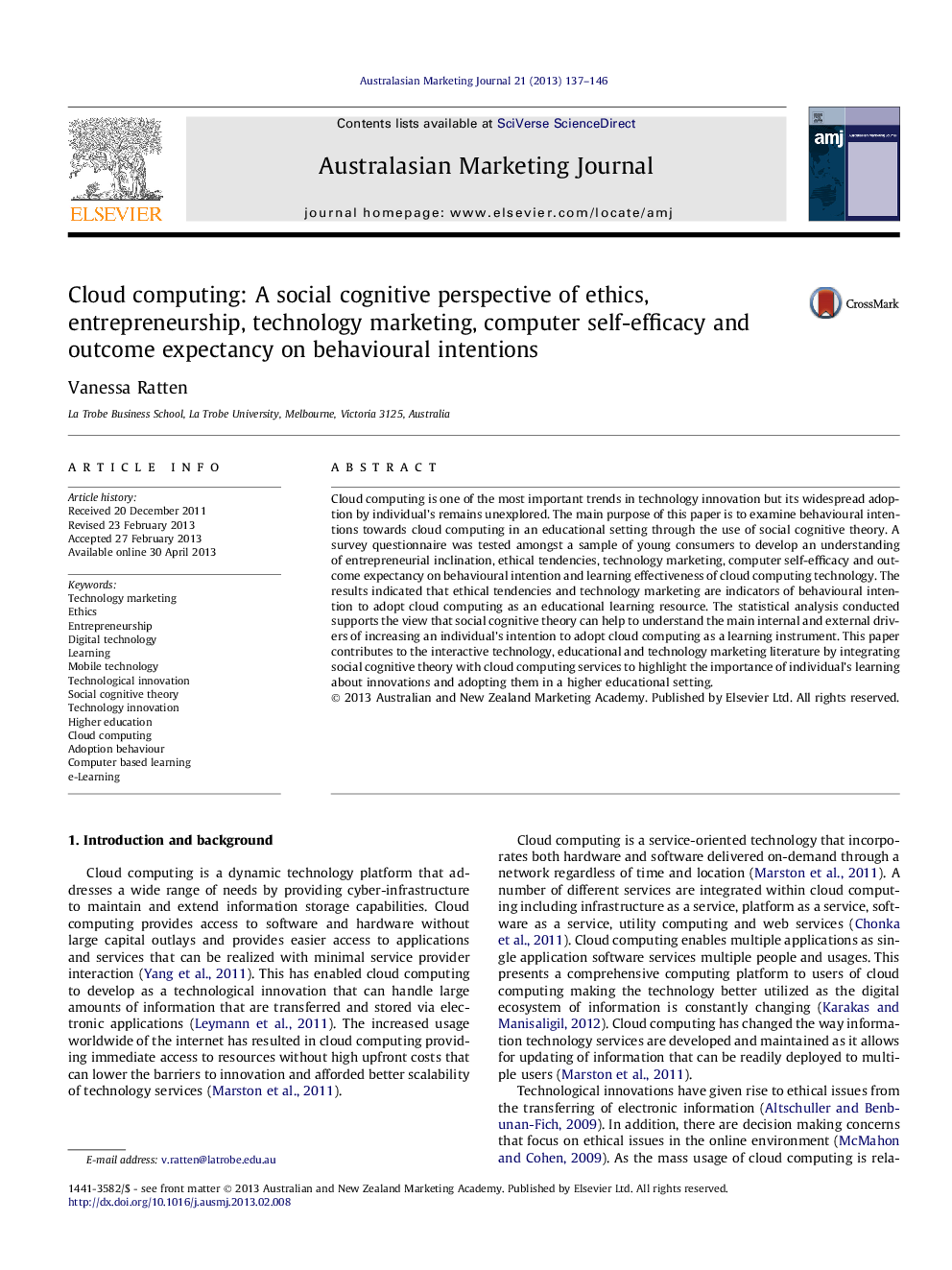ترجمه فارسی عنوان مقاله
محاسبات ابری: یک چشم انداز شناختی اجتماعی اخلاق، کارآفرینی، بازاریابی فن آوری، خودکارآمدی کامپیوتر و پیش بینی نتیجه در مقاصد رفتاری
عنوان انگلیسی
Cloud computing: A social cognitive perspective of ethics, entrepreneurship, technology marketing, computer self-efficacy and outcome expectancy on behavioural intentions
| کد مقاله | سال انتشار | تعداد صفحات مقاله انگلیسی |
|---|---|---|
| 41296 | 2013 | 10 صفحه PDF |
منبع

Publisher : Elsevier - Science Direct (الزویر - ساینس دایرکت)
Journal : Australasian Marketing Journal (AMJ), Volume 21, Issue 3, August 2013, Pages 137–146
ترجمه کلمات کلیدی
بازاریابی فن آوری - اصول اخلاق - کارآفرینی - فن آوری دیجیتال - یادگیری - فن آوری تلفن همراه - نوآوری در فن آوری - تئوری شناختی اجتماعی - نوآوری در فن آوری - آموزش عالی - پردازش ابری - رفتار فرزند خواندگی - یادگیری مبتنی بر کامپیوتر - آموزش الکترونیک
کلمات کلیدی انگلیسی
Technology marketing; Ethics; Entrepreneurship; Digital technology; Learning; Mobile technology; Technological innovation; Social cognitive theory; Technology innovation; Higher education; Cloud computing; Adoption behaviour; Computer based learning; e-Learning

